We recently connected with Ashley Campbell and have shared our conversation below.
Ashley, thanks for taking the time to share your stories with us today Was there a moment in your career that meaningfully altered your trajectory? If so, we’d love to hear the backstory.
A defining moment in my professional career involved the use of the N-word during a therapy session. No matter how many times it happens, it still is very shocking and I always feel ill prepared. I was an intern at the time and decided to ask my supervisor how should I have responded. Naturally my supervisor was very helpful and easy to talk to. However, being a white woman, she was unable to help with this particular situation as she could never be able to relate to the lived experience of being black. This changed the trajectory of my career in regards to who I chose as my mentor moving forward. As a new therapist, it is a requirement to have a supervisor who oversees your clinical experience. This supervisor is your mentor to help guide you when you are stuck or feel challenged administering therapy. I learned through my experience, that it was a priority for me to have a supervisor who looked like me and could relate to the black lived experience. It was important for me to have someone mentoring me, who has already journeyed through the uncomfortable moments as a budding therapist, especially a black therapist. When it came time for me to find another supervisor, post graduation, I discovered through my search that there was a shortage of black female supervisors. This planted the seed for RDU Black Therapists to be established. The original idea was to highlight the local black mental health professionals in the area, so that we know where to go when we need to find a black supervisor, mentor or network of likeminded individuals. It has now turned into a directory, connecting the black community with black therapists to receive healing from someone who looks like them. There’s a real power in seeing someone who looks like you overcome similar struggles; this tangible example makes overcoming your own challenge feel more attainable. It’s not attached to privilege; it’s attached to strength.
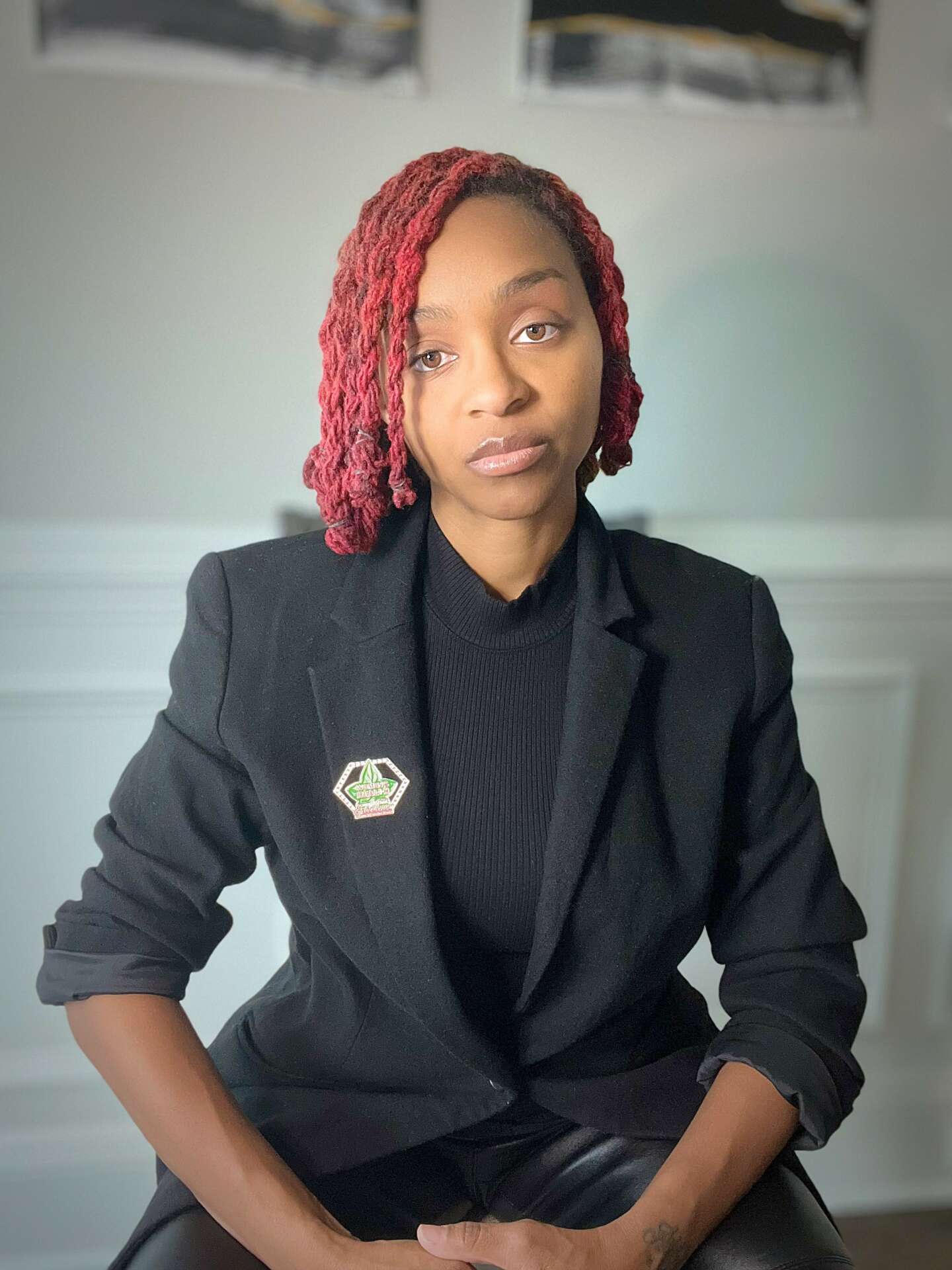
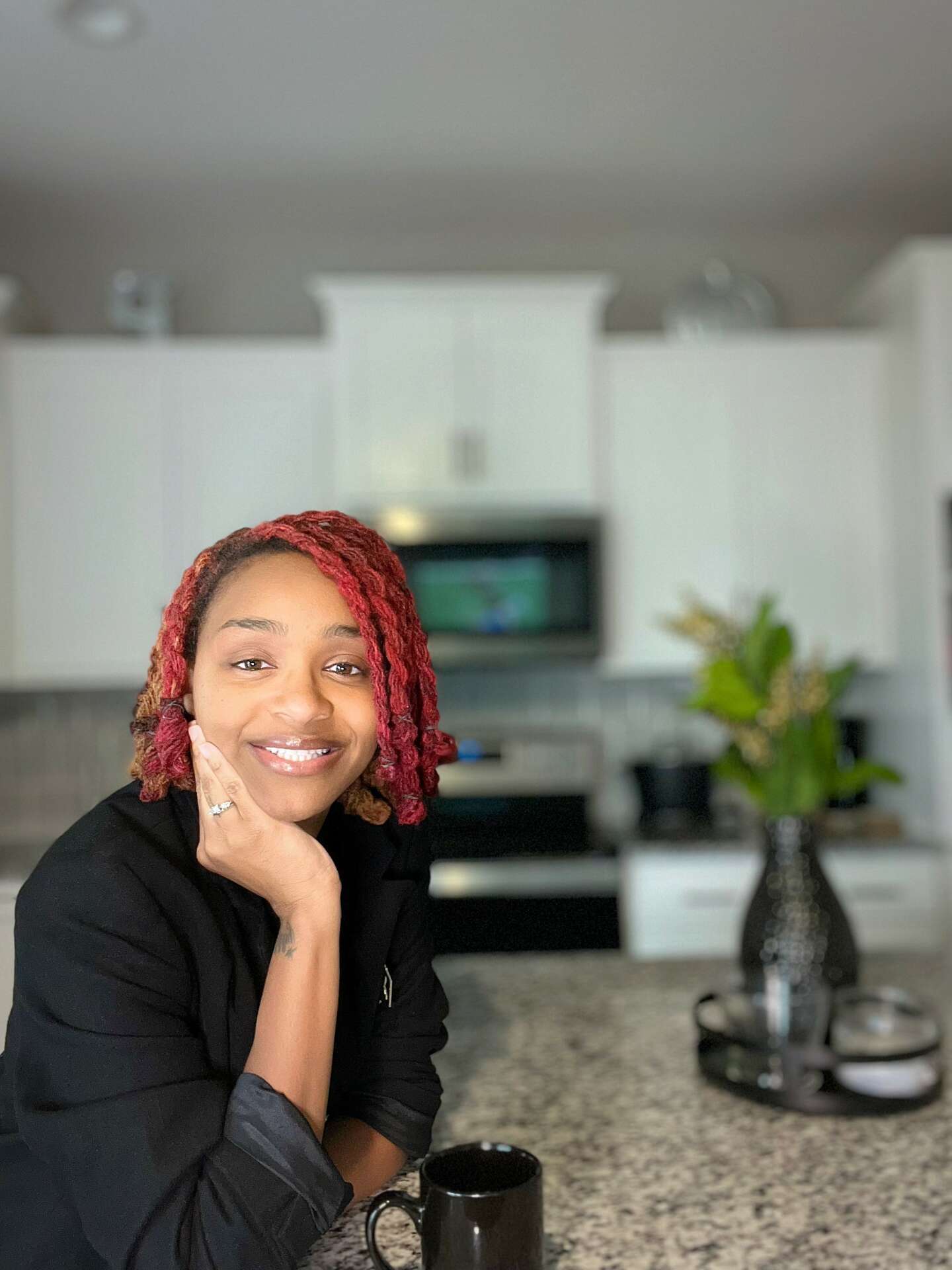
Ashley, before we move on to more of these sorts of questions, can you take some time to bring our readers up to speed on you and what you do?
I am Ashley Campbell, a small town girl from Williamston, NC. Living in a small town as a black person, it’s common to experience microagressions and direct racism. While growing up, there were still many historical reminders of segregation in our town. I remember when I first consciously learned about the difference between black and white people. My grandfather took me to a restaurant that he frequented called R.C. Now, this wasn’t the first time we went there, but this was the first time that I saw a small window beside the entrance. I never noticed it before and being the curious young girl that I was, I asked him what the window was for. He said, “well baby, that was where black people had to come and get their food because they weren’t allowed to eat inside at one time.” I remember having so questions after that, but the main one was “why would he want to eat somewhere that at one time, he wasn’t even allowed inside?” I remember feeling hurt and a sense of defeat that there was a time my grandfather, as a young boy couldn’t have the same experience as another young boy his age, who happened to be white. That day, the seeds of hurt and defeat came together and planted a seed of advocacy in that little girl.
Another prominent portion of my childhood involved being a part of a blended family. My mother remarried when I was seven to my brother’s father. Looking back now, I see how challenging it is being a parent while simultaneously handling all of life’s responsibilities and attempting to be emotionally regulated for your children. Not to mention, as adults still trying to heal from their own childhood struggles and trauma while taking on those responsibilities.
I experienced emotional abuse from my then stepfather. My mom having experienced worse abuse during her childhood knew that it wasn’t right but felt that it was somewhat of a normal occurrence. So through her own trauma lens, my abuse wasn’t that bad, but she did what she could to ensure that I didn’t have to rely on him for anything. As I mentioned, she felt that this was somewhat of a normal occurrence and in the black community, it is. I never told anyone while I was growing up because I felt the need to remain loyal to my family and to the rule of “what happens in this house, stays in this house.” This too, is an all too common occurrence within the black family. This experience is what created the desire for me to be who I needed when I was younger.
After graduating from undergrad with an English degree, I felt lost. I knew that I wanted to attend graduate school, but I needed to choose a fulfilling major the second time around. Why did I major in English in the first place? Lack of guidance, and the outcome of an admissions counselor asking a senior in high school, what subject did they do good in.
Upon reflection, I remembered that I enjoyed psychology back in high school and began to research the field. When I came across Marriage and Family Therapy, it spoke to my inner child. I then embarked on my journey to becoming a Marriage and Family Therapist.
During my training in the discipline, my perspective was opened to new levels. I began to see how differently my culture viewed mental health as a whole. I started making connections from my childhood with cultural beliefs, behaviors and patterns that were not healthy. I realized that I was becoming a champion for black mental health in my family and that finally I was being fulfilled with my purpose.
After graduation, I learned of how scarce black mental health professionals were in the field. We only make up approximately 2% of the mental health professional population and the amount of black people who need services largely outnumber 2%. This low number impacts those who are seeking therapy, as well as therapists seeking a network of folks who look like them. Being in the capital of North Carolina, it shocked me that the number was still so low here. I then began to research via the internet and social media, contacting as many licensed black mental health professionals in the area that I could find. My goal was to create a simple directory where all of the local therapists and counselors were compiled into one list. This list is where I hope that the black community can find services from a therapist who looks like them. This birthed the organization RDU Black Therapists.
The main problem RDU Black Therapists solves is making it easier for black folks to find a black therapist. The next goal of RDU Black Therapists is to offer free and low cost therapy to the black community through grants and funding. We are working tirelessly on trying to make that portion a reality.
What sets us apart from other organizations like us? Well, my experience sets us apart. My story is what fuels the organization and will always be my why. We do rejoice in the similar goals that are shared amongst other organizations championing for black mental health. We hope to see more organizations with the same goals continue to pop up because there are so many of us who need services. The more organizations created to solve the problem, the more the problem will be solved.
Each time that I overcome imposter syndrome just a little more is a proud moment for me. Sometimes we don’t see ourselves full of the potential that we embody. Just like some family members have a hard time seeing you all grown up, we oftentimes share that same lack of vision. So every time that I am encouraged to make a connection, fill out a grant application or create a post on social media that thousands of people see, is a proud moment of me stepping outside of that imposter perspective.
The main thing I want people to know about this organization is that it is founded by someone who is relatable, human, is continuously doing the self work to become a better person and is a strong advocate for black mental health. Relatability breeds empathy, empathy is what people need when they are struggling. Being human informs us that mistakes will be made but that is ok. Therefore, I am above no other human. Continuously doing self work displays the knowledge that I will remain teachable and self-aware that there’s always, ALWAYS work to be done. Lastly, but most definitely the priority, being a strong advocate for black mental health will always be the mission, so there aren’t any questions as to what RDU Black Therapists stands for.
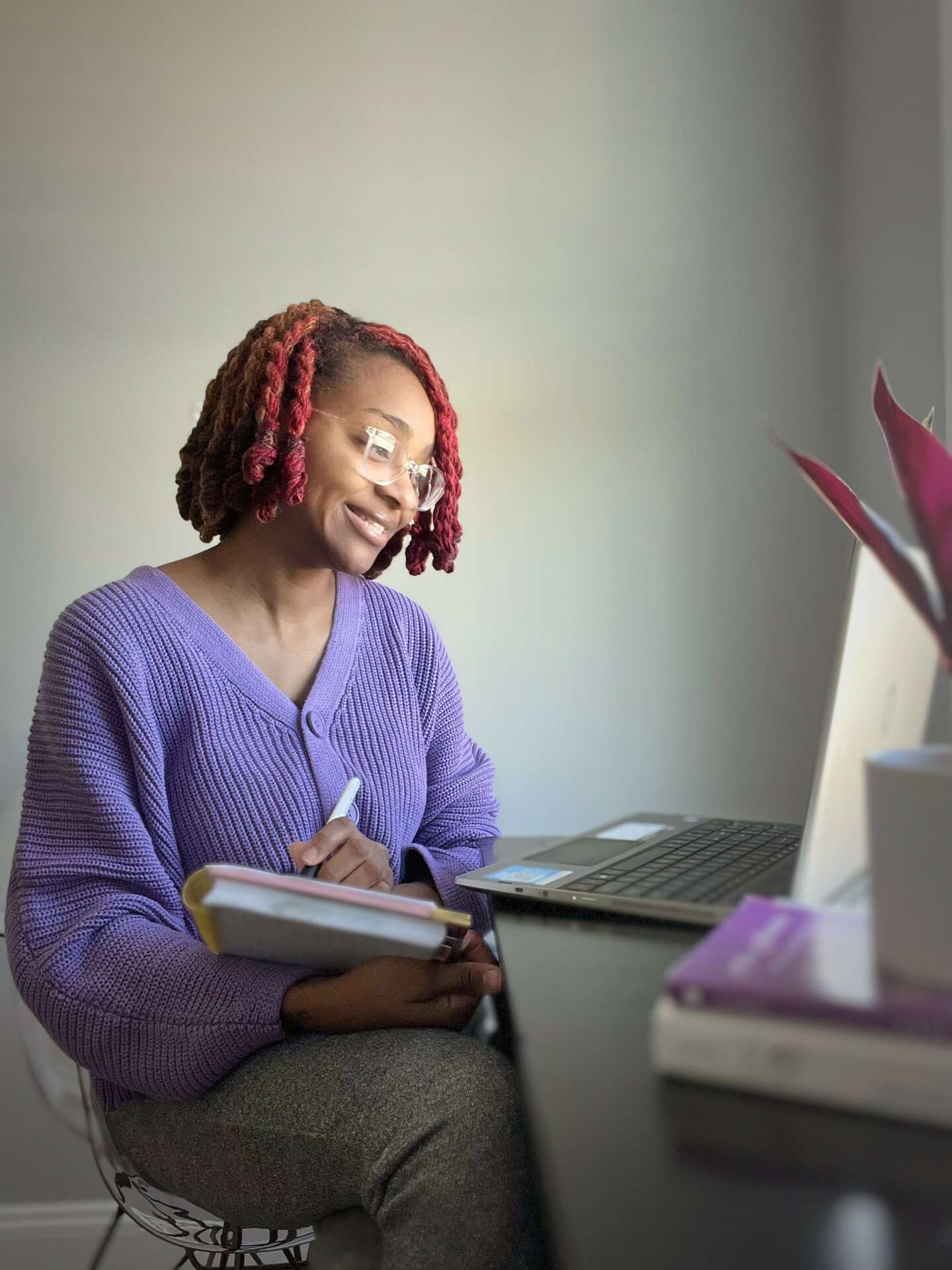
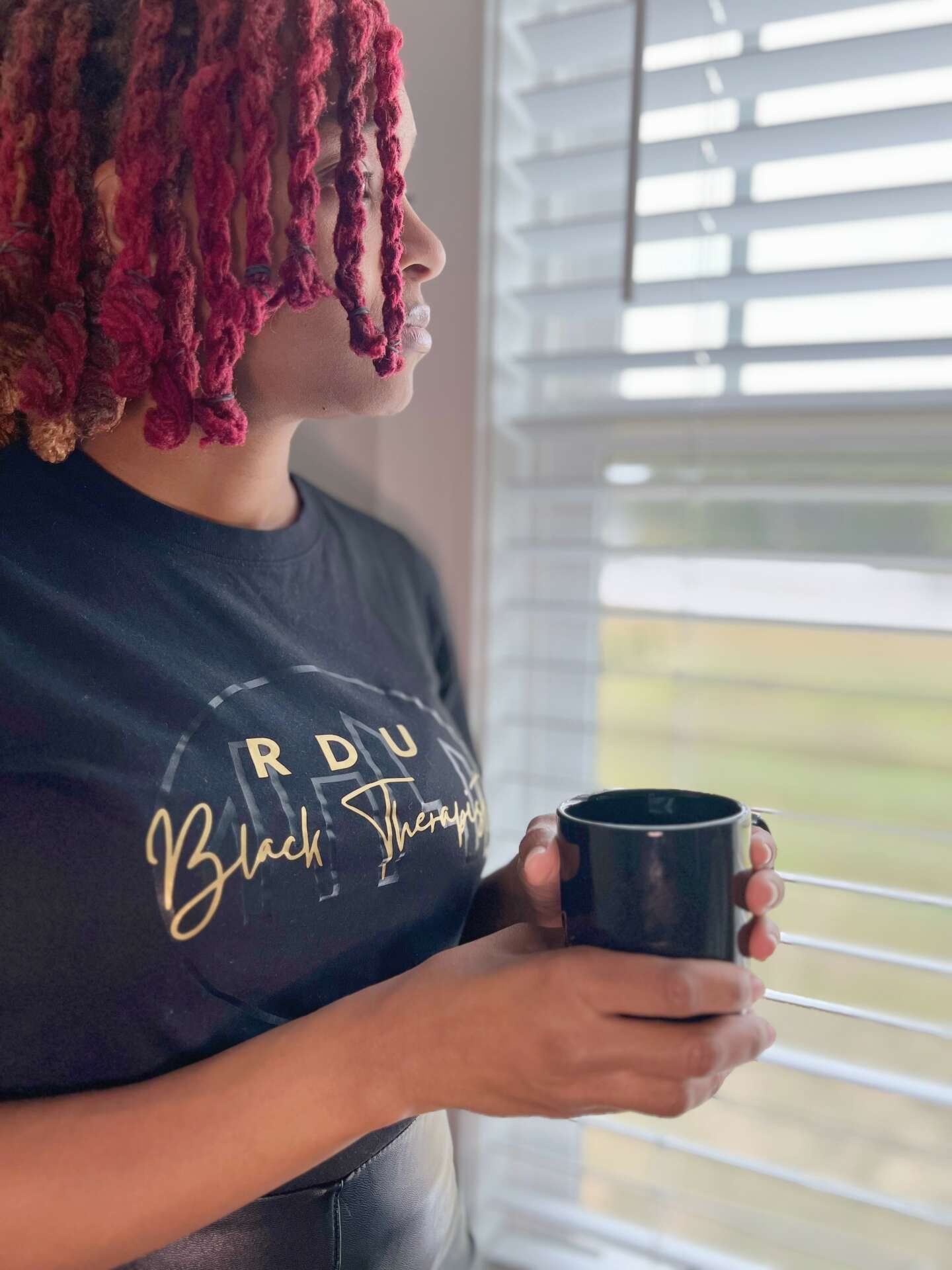
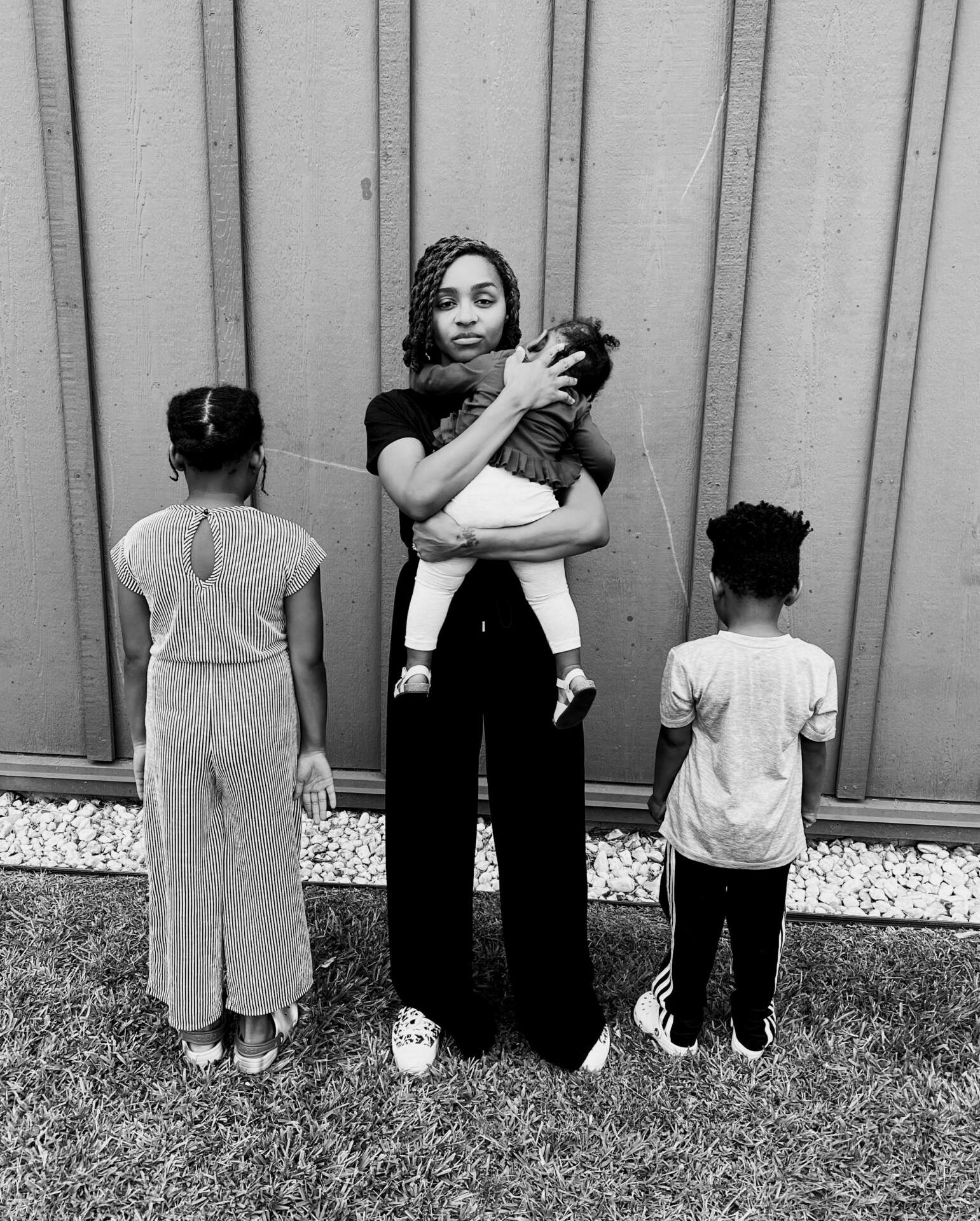
Training and knowledge matter of course, but beyond that what do you think matters most in terms of succeeding in your field?
I feel that lived experience is most helpful in succeeding in this field. No matter how much training one receives or stories they hear from other people, experience is going to trump that knowledge every time. Having lived through something connects you to that experience emotionally. Being able to emotionally describe the experience increases the relatability and authenticity in helping another person through a shared experience.
If you could go back, would you choose the same profession, specialty, etc.?
If I could go back, I would have majored in psychology during undergrad. I feel that this would have saved me time in between undergrad and graduate school. I waited about four years before I began graduate school. This is hard for me to say, however because I do know that everything happens for a reason. I do feel that my maturity level is where it needs to be during this venture, but if I could, I believe that would be the change I would implement. However, I would still choose the same profession, but got here quicker (which is the American way).
Contact Info:
- Website: https://bit.ly/3L1DKSq
- Instagram: https://instagram.com/rdublacktherapists?igshid=YmMyMTA2M2Y=
- Facebook: https://www.facebook.com/profile.php?id=100076363570787
- Other: Email: [email protected]


